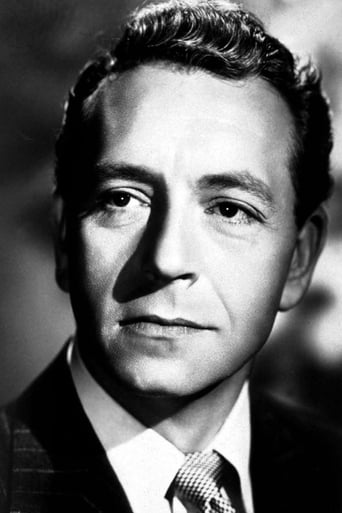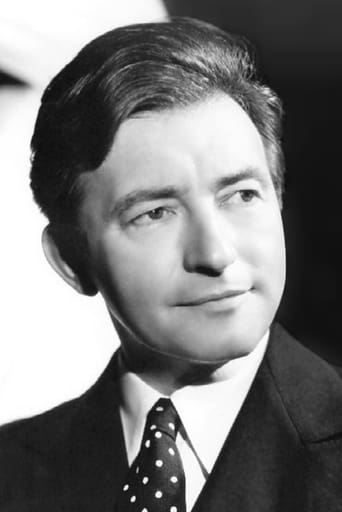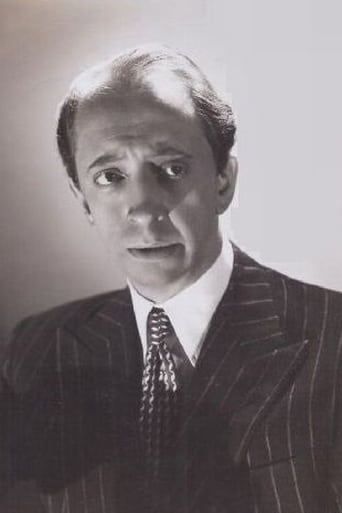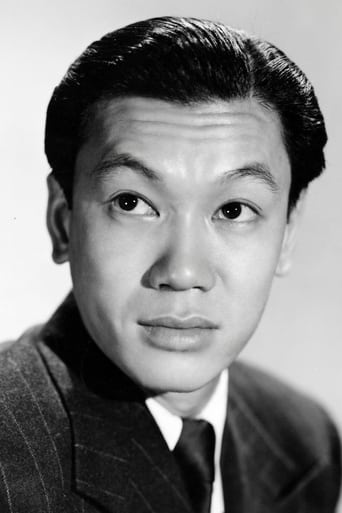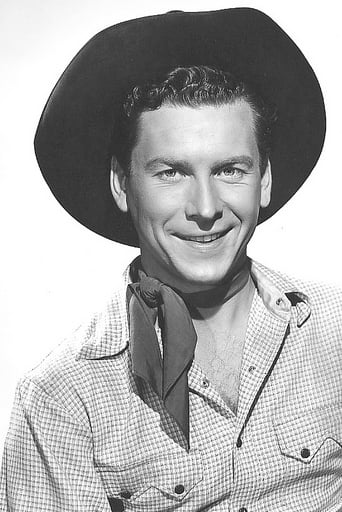Kidskycom
It's funny watching the elements come together in this complicated scam. On one hand, the set-up isn't quite as complex as it seems, but there's an easy sense of fun in every exchange.
Staci Frederick
Blistering performances.
Cheryl
A clunky actioner with a handful of cool moments.
JohnHowardReid
Producer: Henry Blanke. In charge of production: Jack L. Warner. Copyright 26 October 1946 by Warner Bros. Pictures, Inc. New York opening at the Hollywood: 18 October 1946. U.K. release: 20 October 1947. Australian release: 17 June 1948. 10,246 feet. 113½ minutes.SYNOPSIS: Cellist marries old love, not realizing she has acquired a "new" past.NOTES: Eugene Walter translated and partially rewrote Louis Verneuil's two-character play. It was presented on Broadway in 1928 starring Fay Bainter and John Halliday, under the title Jealousy. Paramount made a film version in 1929 with Jeanne Eagels and Fredric March. For the film the play was expanded, with Halliwell Hobbes playing the "guardian". Jean De Limur directed from an adaptation by Garrett Fort. In 1946 the Verneuil play was again revived, this time in an adaptation by Jane Hinton. Re-titled Obsession, it starred Eugenie Leontovich and Basil Rathbone.COMMENT: Nonsensical but superbly photographed soapie in which Claude Rains has one of the most marvelously flamboyant roles of his entire career. In fact, so electrifying is Rains' sheer presence (of course the writers have provided him with some wonderfully zesty lines) that when he leaves the action, the film just falls apart.Rapper's direction is also remarkably stylish. In less inventive hands, the film would come across as little more than a photographed stage play with music, but Rapper has dressed it up with short takes and dazzling long shots, dramatic angles and volumes of atmosphere. Grot's richly moody sets, dynamically photographed by Ernest Haller also contribute - as does Korngold's lavish music score.Rains wipes the floor with the rest of the cast, though Davis and Henreid strive valiantly. In all, a film for Rains' fans and Korngold music lovers.OTHER VIEWS: For a film that depends so much on its musical score, we cannot say that the sound was up to the usual Warner Bros high standard in the print under review. It was no more than passable. Fortunately the dialogue came across loud and clear. Not that the speeches given to Bette Davis and Paul Henreid are all that worth hearing, but those written for (and enunciated with such relish and bite by) Claude Rains are. In fact, Mr Rains has such a royal old time playing the nasty that Bette's "big scene" after his departure comes as a considerable let-down and anti-climax. The melodramatic plot is so unbelievably creaky, only the deliciously oily Rains can keep it moving. Admittedly, he receives some help from Rapper's more inventive-than-usual direction, from the superior deep-focus camerawork of Ernest Haller, and the broodingly atmospheric sets created by Anton Grot. But it is Rains' film - and really his alone.
richard-1787
I wonder how the conversation at Warner Brothers went the day they dreamed up this movie. Was it something like: "Hey, Casablanca was a big hit. I wonder if we could cash in on that? Let's try retelling the same story, and just change a few superficial things, so it isn't too obvious. You know, keep the story about the woman who has an affair with another guy during the war because she thought the man she was in love with had been killed. And then he comes back, and meets the interim guy, and there's jealousy and all that. Maybe have her pull a gun on the interim guy again, the way Bergman did on Bogart. That was a good scene! And then she finally goes off with her first love again. Something like that, you know, but we just change a few details. And say, we've still got Paul Heinried under contract. We can get him to play the guy who gets cheated on again. He was good at that. And maybe use Claude Raines again. We'll just change a few of the details." And so they did, and so Deception was born.This time, we see more of it through the woman's eyes, this time played by Bette Davis. And this time, the man and the woman weren't actually married before, so if she had an affair with another guy when she thought the first one was dead, there wasn't actually anything wrong with that. But the first guy still gets jealous.Did Heinreid get tired of playing the noble cuckold? I wonder.Did Davis object to having to play a watered down, less attractive version of a role Ingrid Bergman had already immortalized? This isn't a bad movie, though it is often VERY melodramatic. Unlike Casablanca, I don't know how many men could have sat through it.It shows the difference you get with even very fine actors when the script just isn't that interesting.
dougdoepke
Keeping audience interest with just three players over a two hour time presents a real challenge. But the pro's at Warner Bros. manage to do it, in spades. Of course, it helps having two of the most dominating performers of the time, Davis and Rains, as leads. Watching them play off one another is a real histrionic treat. In fact, was there ever a more detestable egotist than Rains' arrogant composer, Hollenius. His high-falootin' vocabulary just oozes civilized mayhem. Watching him slyly sabotage Novak's (Henreid) career out of jealousy over Christine (Davis) amounts to a brilliant piece of scripting and acting. Then too, he makes that high- class dinner from heck more unnerving than a pop quiz on rocket science. From now on, I'm sticking to tuna on rye.Actually Davis has one of her more sympathetic roles. True, she deceives poor Novak about her affair with Hollenius, but it's to spare him more agony after the horrors of WWII. And when she has finally had enough of Hollenius' abusive manipulations, she understandably puts a hole in him, while he takes a symbolic tumble down the stairs. I was hoping she'd let the tyrant have all six rounds, but I guess that would cross a criminal line barring her from eventual redemption. Anyway, it appears the movie's moral is that there are deceptions and there are deceptions. Christine's are not intended to harm, whereas Hollenius's are, and likely that's why the movie ends as it does.The production is slickly mounted, worthy of Hollywood's so-called Golden Age. The furnishings, costuming, and set design create just the right high-class ambiance. Watching these well upholstered people glide between gilded rooms is a tour most of us never get outside of the movies. Plus, it's a perfect setting for big shark Hollenius to forage in. My only gripe is with poor Gribble (Abbott). Did they have to telegraph his fall guy status with a comical name like 'Gribble'.Anyway, this is a Rains showcase, showing why an actor doesn't have to be physically big to dominate the screen, even when the formidable Davis is on the same screen.
moonspinner55
Louis Verneuil's play "Monsieur Lambertheir", first filmed in 1929 as "Jealousy", became the last screen-teaming of Warners stars Bette Davis and Claude Rains; results are typically florid and predictably melodramatic. Paul Henreid is a European cellist who relocates to New York City after the war and is reunited with former flame Davis, a talented pianist; she quickly moves him into her luxurious apartment and marries him, forgetting to disclose that she has become the protégé (or rather, mistress) of a tyrannical, world-famous composer and conductor. The apparently-intimate relationship between Davis and the wittily snide Rains isn't disclosed in detail, but we are to assume he lavishes gifts upon her in the context of a sexual union (although there hardly seems to be any passionate energy between them, the writing being so frothy and hot-headed). Screenwriters John Collier and Joseph Than are far too wordy in their setting-up of what amounts to a maddeningly ineffectual plot. Somehow, between the classical music and the overheated performances, the picture is entertaining enough, but the old spark seems to be missing. Davis (pregnant in real-life) looks a bit haggard, and practically hands the film over to Rains, who is full of spite and malice. There are few principal supporting characters, and one eventually tires of the trio's tantrums. It's a fairly well-upholstered production, although literate in the sense that soap operas can be intelligent. Davis soon left Warner Bros., and one can see why: the magic is gone. ** from ****


